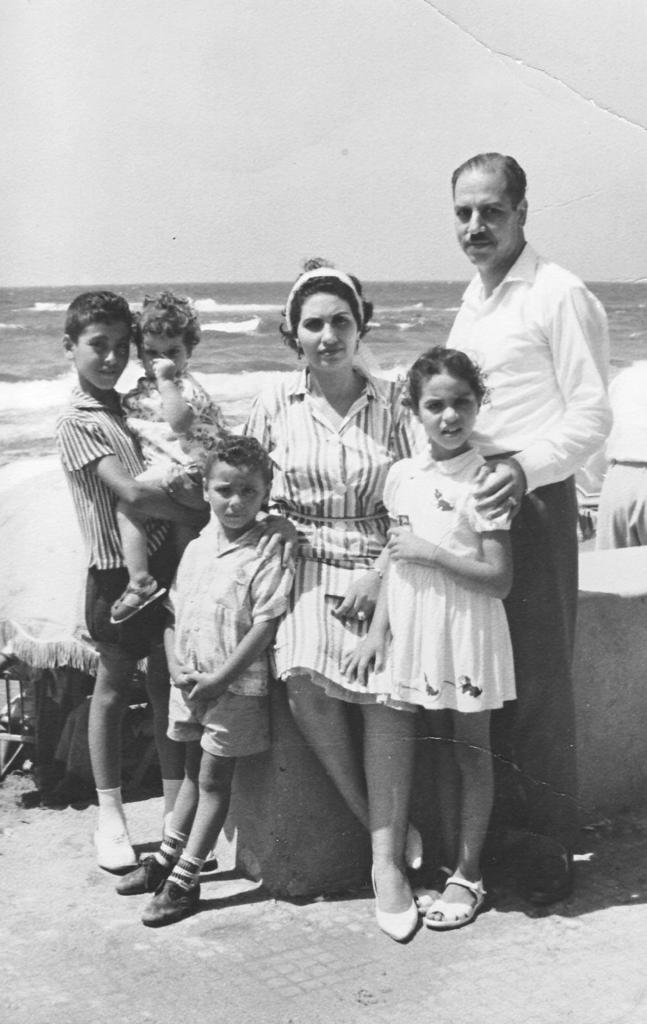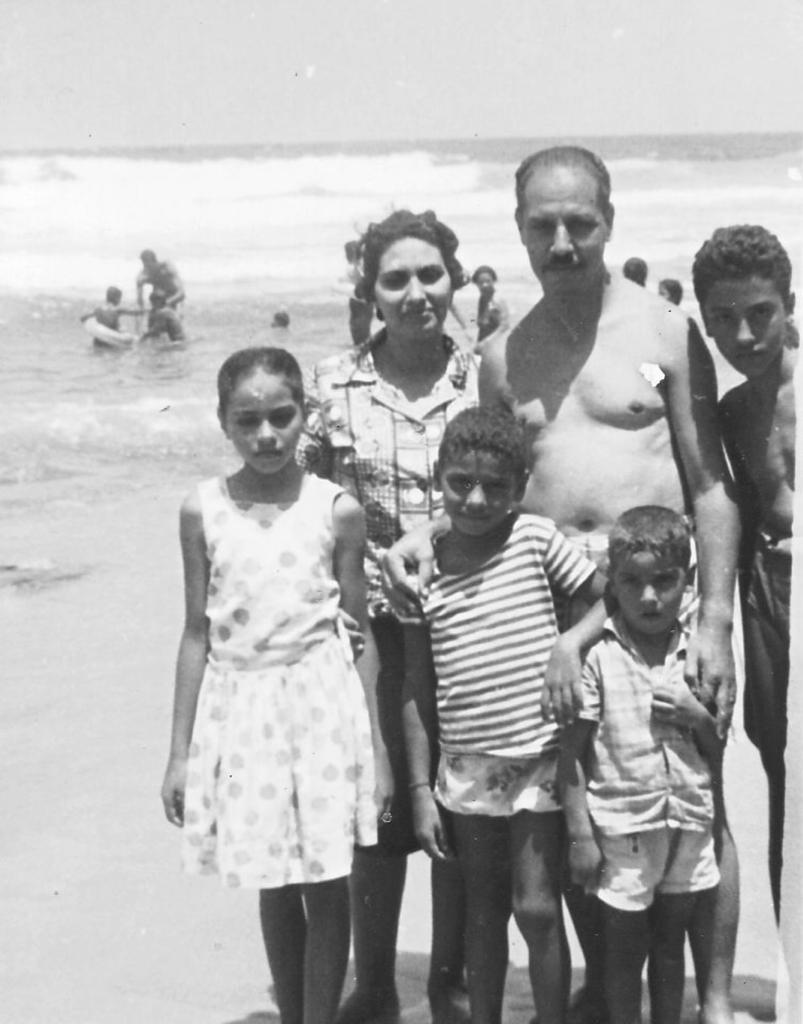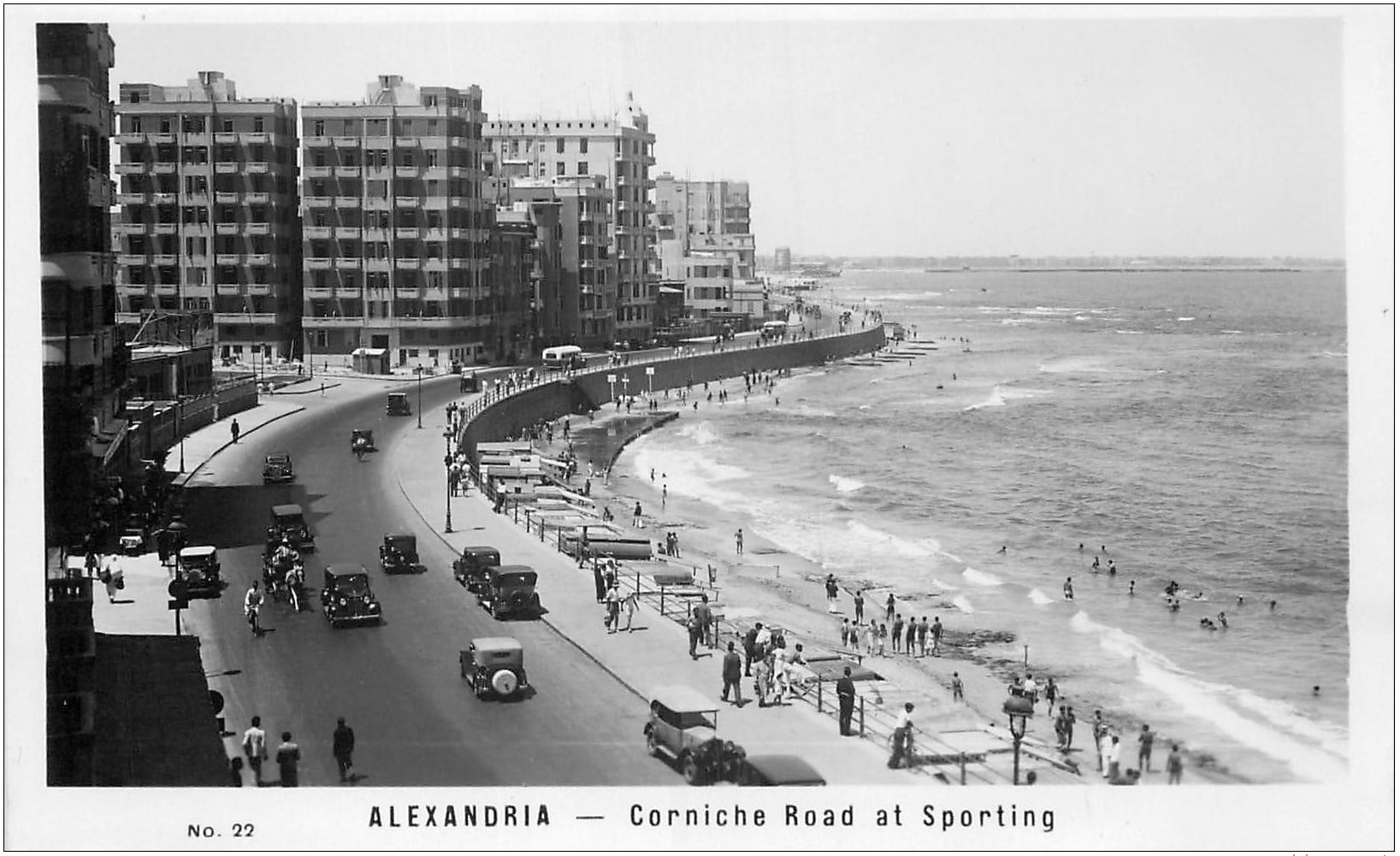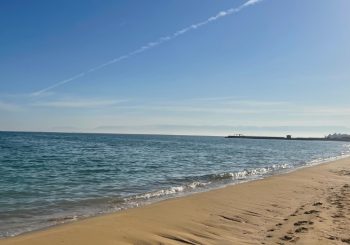I recently visited the North Coast for a few days with my family after several years of not going on summer vacations together. Though the trip was fun, and we all enjoyed spending time together by the beach, the first words my father said as soon as we were back were “Nothing can compete with our unforgettable summer trips to Alexandria!”
Ehab Adib is a 67-year-old project manager who works in the construction field in Dubai; he is also my father. Originally from Upper Egypt, moved to Cairo after university, and later to Dubai, my father summarized his summer vacations when he was young as trips to “the most beautiful city in Egypt”: Alexandria.
Whenever the topic of summer came up during a family gathering, or a conversation between my dad and me, it was always about Alexandria. Since I had not visited Alexandria until my late teenage years, all I knew about the city was from my father’s stories. He always described the family’s annual trips there as his favorite time of the year.

“We used to go either with our relatives or close neighbors. We rented a huge flat with around four rooms, two for each family,” he explained, as he began reminiscing on how ecstatic they felt when they smelled the water and iodine as soon as they approached the coast and historical city.
My father’s family and other families like his, travelled from other governorates around the country to Alexandria for summer, as they did not own property there. Their first step upon arrival was renting an apartment for the month-long summer vacation. Similarly, if people did not have their own beach umbrella and chairs (and most didn’t), they had to rent.
At the beginning of the trip, there had to be a few rules: the eldest son from each family would usually be responsible to head to the beach early to secure a spot close to the sea. The eldest son from each of the two families traveling together would alternate each day because it was a task no one enjoyed. The mothers would be responsible for preparing breakfast and lunch before the two families headed to the beach to spend the day, so that food would be already prepared when they all went back home.
Cleopatra, Sporting, Al Ibrahimiya, Stanley, Camp Shizar, were a few of the most popular beaches in Alexandria at the time, in addition to Miami and Al Maamoura, which were considered more high-end. Depending on where they rented an apartment, they would go to the same area’s beach. Once or twice they would visit a different beach as a form of refreshment amid their vacation.
“At our time, people were friendlier! Every family would start small talk with the family sitting next to them and they would share snacks [mixed nuts and seeds] and enjoy their time together. Sometimes, they would even plan to sit next to each other the next day too, to continue their talks and spend the entire ‘masyaf’ together,” he exclaimed, clearly hinting at the absence of socialization between families on our last trip to Sahel.
As for taking photographs, since there were no mobile phones or any form of instant photography, photographers would leave their studios and go to the beach to take photos and, at the same time, increase their income.
“They would take pictures of us and give us a receipt, then we would receive the picture two or three days later,” he added.

“The community was quite liberal if I may say, but this was during the 60s to the early 70s, as the [social situation] changed after that. We would cross the road to the other side of the beach to buy ful or shawarma sandwiches, or even ice-cream, and we would be dressed in our bathing suits, both boys and girls, young and old,” he sighed.
After the beach, it was lunch and nap time. The family would head back and recharge to resume the rest of the activities for the day according to the program they preplanned before traveling. The program would consist of activities for the entire month, whereby they would visit the circus, the theatre, the cinema, and the amusement park, with each activity repeated multiple times.
During the summer, it was common for the latest movies to be released in all of Alexandria’s cinemas, and theatre groups usually went there, following holiday-makers’ schedules. These included famed actors such Adel Imam, Amin El Heneidy, and Tholathy Adwaa’ El Masrah (The Stage Light Trio), among other popular comedians at the time.
The one activity that the youngsters in the family did not really enjoy, but was the most enjoyable part of the trip for the parents, was walking by the corniche at night. With the cool summer breeze, the smell of iodine from the water, bumping into people they knew – also vacationing – , and enjoying termes (lupini beans) or grilled corn on the cob from street vendors, those night walks were deemed enchanting.

Photo via Facebook
My father described those walks as a magical experience for the older family members. He even recalls how my grandmother used to call them “ahwet 3ala allah (a café for free)” because they were considered nicer than sitting at a café, and cost nothing.
A few years ago, my father wished to visit Alexandria during the summer for old time’s sake, and so we went as a family. He instantly regretted it when he realized that his nostalgic memories did not match the reality. Whether it was overpopulation, urbanization and countless towers being built by the corniche, or the overall unwelcoming atmosphere by the beach, it was nothing like the stories my father once told me.
“When I visit Alexandria now, I enjoy the memories more than the places themselves,” concluded Ehab.
I wished to see the city the way my father described it to me, but time had a different say.
Subscribe to the Egyptian Streets’ weekly newsletter! Catch up on the latest news, arts & culture headlines, exclusive features and more stories that matter, delivered straight to your inbox by clicking here.






Comments (3)
[…] the second largest city in Egypt, Alexandria is home to Egypt’s main seaport and was once a popular summer holiday destination. The corniche, one of its most distinctive features, if not the most distinctive, is the main […]
[…] Source link […]